Donald Trump returns as U.S. president: What does it mean for Ukraine and the world?
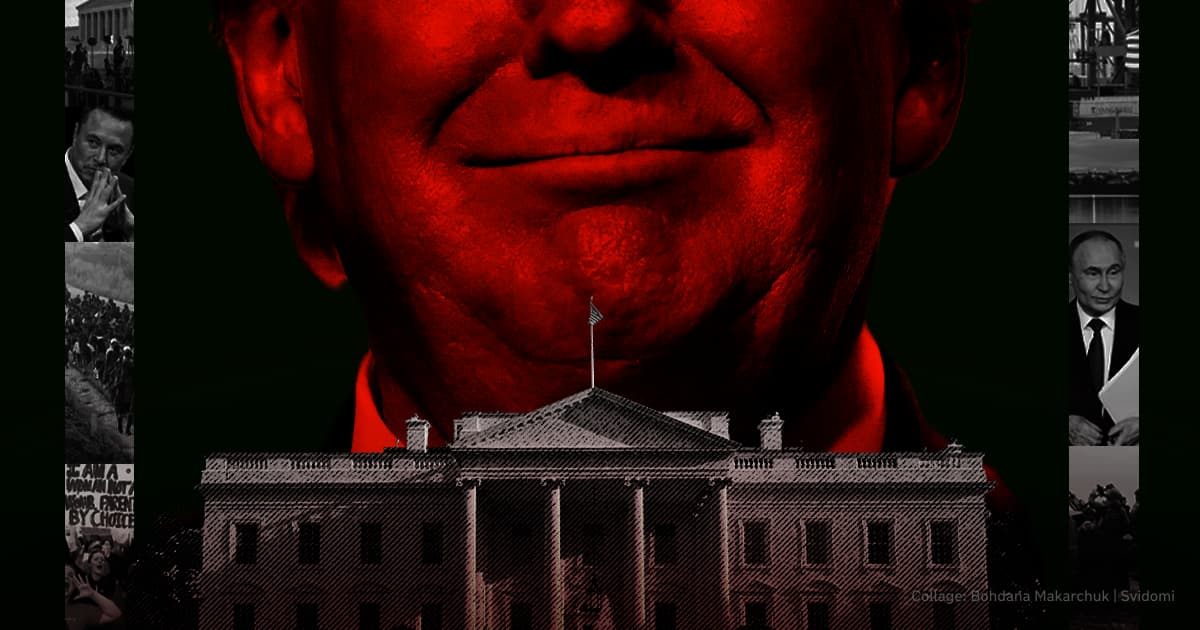
The Republican candidate, Donald Trump, has once again become the President of the United States. He received about 51% of the American vote in one of U.S. history's most dramatic presidential campaigns. His main opponent, the Democratic candidate Kamala Harris, received about 47% of the votes.
During the campaign, Donald Trump survived an assassination attempt in Pennsylvania. He expressed controversial views on immigration policy, women's right to abortion, and Russia's war against Ukraine.
Svidomi explains what Donald Trump’s victory means for U.S.-Ukraine relations and the Russia-Ukraine war.
How Donald Trump won the presidential election
On July 21, 2024, U.S. President Joe Biden announced that he would withdraw from the upcoming presidential race. The Democratic Party quickly needed a new candidate, and Vice President Kamala Harris stepped up. Her candidacy energized Democratic voters, raising $81 million for her campaign in the first 24 hours and over a billion dollars.
In her short campaign, Kamala Harris focused on "swing states" — states without solid allegiance to a particular presidential candidate. It’s Nevada, Arizona, Wisconsin, Michigan, Pennsylvania, Georgia, and North Carolina. Harris organized rallies, gave speeches, and conducted interviews there.
But judging by the election results, Kamala Harris was unable to flip these states. Donald Trump won all six swing states, securing about 51% of the popular vote nationwide.
Congressional elections were held at the same time as the presidential elections. The Republican Party won control of the Senate with 52 out of 100 seats.
A "red wave" swept across the U.S., named for the color associated with the Republican Party. This phenomenon in American politics occurs when one of the two major parties controls both the White House and Congress.
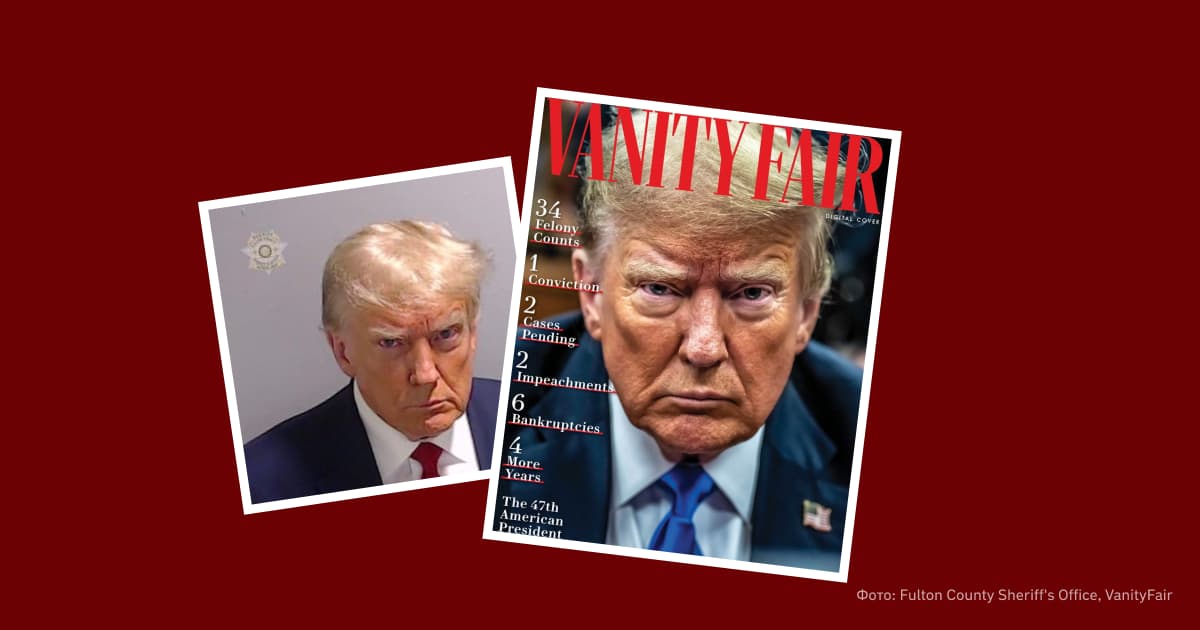
So how did Donald Trump manage to win despite legal challenges, criticism from the American media, and high approval ratings for Kamala Harris?
Trump focused on his loyal base and said what they wanted to hear. Despite the post-COVID-19 economic growth, Americans felt the lingering effects of the pandemic restrictions: decreased trade, rental issues, and higher mortgage rates. Trump addressed these issues at his rallies.
He emphasized themes such as American industry and manufacturing growth and reducing dependence on imports, especially from China. Trump talked about preserving oil and gas production and questioned the Green New Deal — the U.S. policy aimed at transitioning to renewable energy and combating climate change.
Trump also appealed to anti-immigrant sentiments among Americans, insisting that the "southern border" (with Mexico — ed.) was allowing "illegal immigrants" into the country. He promised to "close the border" and tighten immigration policies, even for legal immigrants.
He took a firm stance against LGBT+ rights, particularly those of transgender people seeking official recognition of their identity and access to gender-affirming health care. Trump also pushed for stricter abortion restrictions and proposed cutting government health insurance, which low-income Americans often use.
Trump positioned himself as an "economic populist" with simple, straightforward economic ideas. Most importantly, he sought to win to protect himself from ongoing legal battles. In July 2024, the U.S. Supreme Court ruled that presidential immunity from criminal prosecution likely extends to all "official acts" of a president.
Donald Trump is facing several lawsuits in different states. On November 26, a New York court will rule on a case involving falsified business records from his 2016 campaign. Judge Juan Merchan has until November 12 to decide whether a ruling would contradict the Supreme Court's July 2024 decision. If the judge issues a verdict, Trump's lawyers will appeal, meaning Trump will not face jail time or administrative penalties and will continue to serve as president-elect and prepare for his inauguration in January 2025.
The U.S. Department of Justice is already considering dropping federal charges against Donald Trump related to the January 6, 2021, protests in Washington, where he is accused of inciting demonstrators. Now, with Trump's election victory and his restored presidential status, the Department of Justice may try to drop those charges.
Donald Trump is set to become the next U.S. president. Other countries, including NATO allies and U.S. partners like Japan and Israel, as well as rivals like China, are preparing for significant shifts in U.S. foreign policy. Ukraine, too, is preparing for Trump’s second term.
What Trump said about Ukraine during his election campaign
During his campaign, Trump made equivocal statements about Ukraine and Russian aggression. As an opposition candidate, he accused President Joe Biden of enabling Russia to start the war in Ukraine and claimed that "there were no wars" during his first term.
Trump also promised to "end all wars," referring not only to Russia's war against Ukraine but also to conflicts in the Middle East involving Israel, Iran, and Libya.
In addition, Trump accused NATO members in Europe of "not investing in their own defense," referring to the fact that not all member countries allocate even 2% of their GDP to their military, as NATO requires.
"No, I would not protect you," Trump warned of NATO countries' reluctance to increase defense spending.
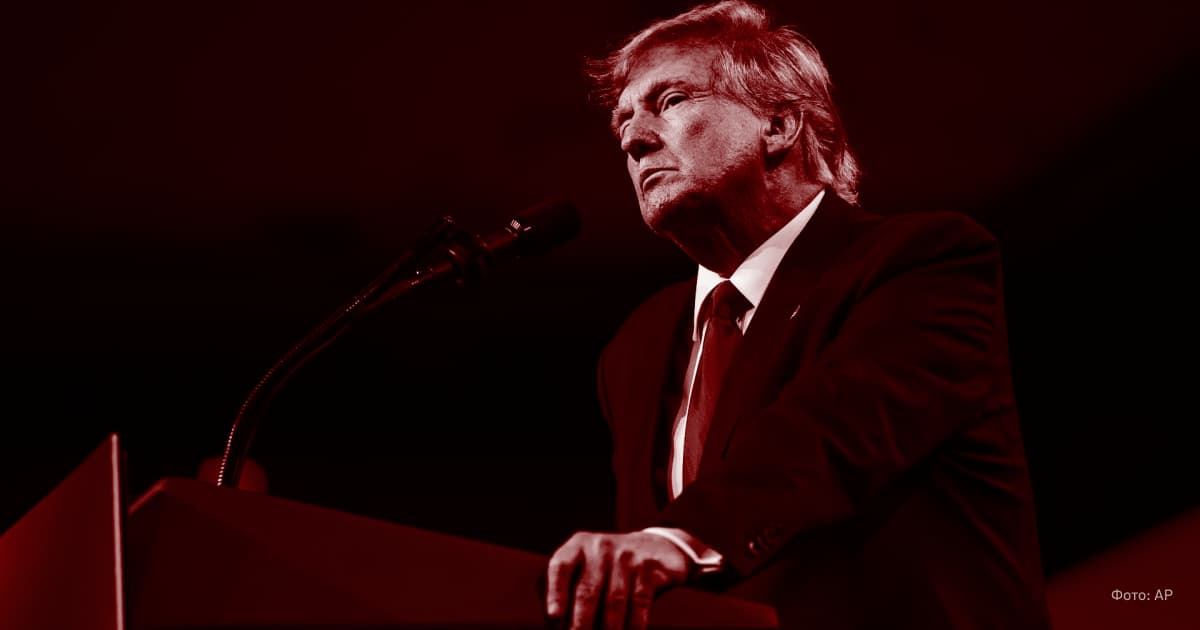
Trump advocated isolationism, prioritizing internal U.S. issues over foreign affairs, so he paid limited attention to external issues such as the war in Ukraine.
During his debate with Kamala Harris on September 10, he refused to say whether he wanted Ukraine to win the war.
On September 26, at a rally in North Carolina, Trump accused Volodymyr Zelenskyy of "not wanting to negotiate (with Russia – ed.)" and claimed that "Ukraine is already gone."
“Ukraine is gone; it’s not Ukraine anymore. You can never replace those cities and towns, and you can never replace the dead people, so many dead people. If we made a bad deal, it would have been much better. They would have given up a little bit, and everybody would be living,” he said.
In October, after meeting with Volodymyr Zelenskyy, Trump accused him of provoking the war with Russia.
“And that doesn’t mean I don’t want to help him because I feel very badly for those people. But he should never have let that war start,” Trump said in an interview. He did not clarify his meaning by saying, "should never have let that war start."
Trump never blamed Russian President Vladimir Putin for Russia's aggression against Ukraine. In October 2024, the Washington Post reported that Trump had a private phone conversation with Putin in early 2024, although the topic of their discussion remains unknown.
Trump's running mate, vice presidential candidate J.D. Vance, expressed the most anti-Ukrainian views on Trump's team. In April 2024, he wrote in the New York Times op-ed that he opposed "funding this war," referring to Russia's war against Ukraine. Vance argued that internal U.S. issues like the economy and illegal immigration were more important and that Ukraine should cede territory to Russia. Today, J.D. Vance is the Vice President of the United States.
In October 2024, the Financial Times reported on a proposed plan being considered by Trump’s team to "end the war" between Russia and Ukraine. The plan suggests "freezing the conflict," creating autonomous regions in occupied areas, establishing a demilitarized zone, and Ukraine withdrawing its NATO membership aspirations. European forces shall oversee security. Crimea is notably absent from the proposal.
This plan resembles the Minsk agreements, which Russia violated by starting its full-scale war and annexing Ukrainian territories as federal subjects under its constitution.
Whether Trump will stick to this plan or whether his team will develop another remains unknown. He is already selecting members for his future administration. Richard Grenell, a proponent of an autonomous zone in eastern Ukraine to halt hostilities, is vying for the role of national security adviser. Former CIA Director Mike Pompeo and Congressman Mike Waltz are candidates for Secretary of Defense, with Pompeo supporting increased aid to Ukraine and Waltz advocating higher tariffs on Chinese goods and opposing China.
In his victory speech in Florida, Donald Trump promised to "end this war" between Russia and Ukraine "in 24 hours." The question is how he will do it.
How Donald Trump's victory might affect U.S.-Ukraine relations and Russia's war against Ukraine
Ukrainian President Volodymyr Zelenskyy was one of the first world leaders to congratulate Donald Trump on his victory.
"I appreciate President Trump’s commitment to the “peace through strength” approach in global affairs. This is exactly the principle that can practically bring just peace in Ukraine closer. I am hopeful that we will put it into action together," the president said in a statement.
Zelenskyy also mentioned his September 2024 meeting with Trump in New York, where he presented his victory plan. Svidomi has already discussed this plan and its possible feasibility.
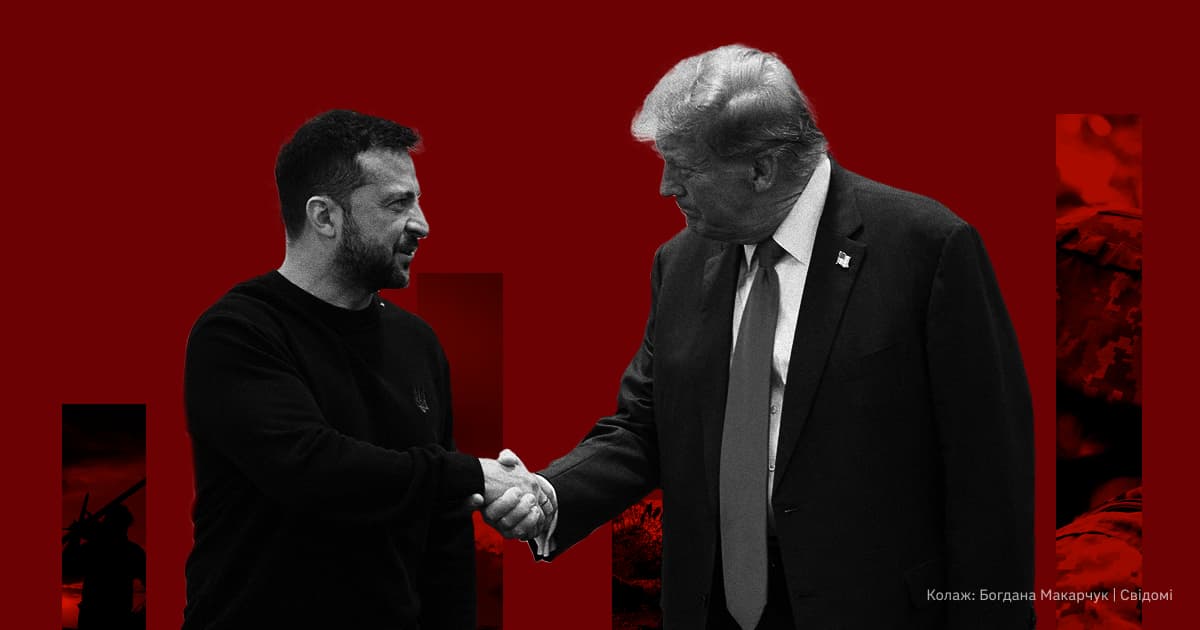
After meeting with Zelenskyy, Trump expressed his desire to end the war "as soon as possible." He noted that Zelenskyy was looking for a "fair deal.” However, Trump did not clarify how he envisions ending the war, only mentioning that he and Zelenskyy have "their own ideas" on the matter.
After Trump's victory, Ukrainian officials publicly congratulated him. David Arakhamia, head of the Servant of the People faction in the Verkhovna Rada of Ukraine, told the Financial Times that he expects a "new dynamic" in U.S.-Ukraine relations.
Citing a senior Ukrainian official, the Financial Times reports a sense of pessimism among Ukrainian officials about Trump's victory, as they will have to work hard to win him over.
"For us, U.S. support means life or death. We must convince Trump to stand with us," Financial Times quoted a Ukrainian adviser.
Meanwhile, some Kremlin officials are mobilizing in response to Trump's victory. The Russian Foreign Ministry officially stated that it is "ready to work" with Trump's administration and will "resolutely defend its interests." Kremlin spokesman Dmitry Peskov declared that the U.S. "will not be able to end the conflict in Ukraine." Russia still refuses to call its war against Ukraine a "war," referring only to a "special military operation" and attempting to portray it as an internal Ukrainian conflict.
Doug Klain, a nonresident fellow at the Atlantic Council's Eurasia Center, says Trump's victory points to uncertainty about future U.S. policy toward Ukraine and the Russian-Ukrainian war.
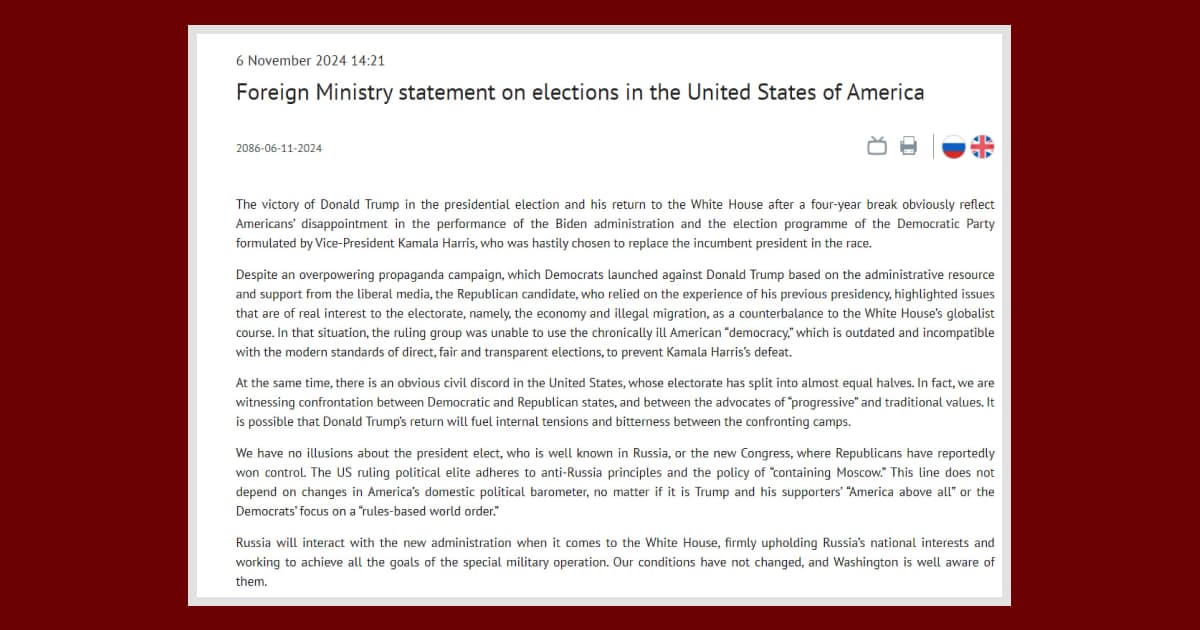
“Trump himself has been clear that he wants to end the war as soon as possible, but he's been vague about how he would achieve this other than making Ukraine and Russia negotiate and that Trump would start talking with Putin directly about it. His advisors have all been floating different ideas for how Trump could "get a win" in Ukraine, and we would likely see a real competition over who has the best plan to deliver a victory for Trump. We've seen various proposals—the America First Policy Institute advised Trump that he should force Ukraine and Russia to the negotiating table, threaten to withhold aid if Ukraine won't begin talks, and increase aid if Russia won't negotiate. JD Vance says that Ukraine should surrender its land and people and that it should become neutral and be blocked from NATO membership. Others suggest that Ukraine should swear off retaking the occupied territories by force and, in exchange, could be granted NATO membership and Article V protection for the remainder of the country,” he explains, adding that in any case, Trump's approach will be very different from that of Joe Biden's administration.
Donald Trump's inauguration will take place on January 20, 2025. By then, Ukraine will have to convince the president-elect of the importance of supporting the country, especially if his party manages to gain complete control of Congress.


